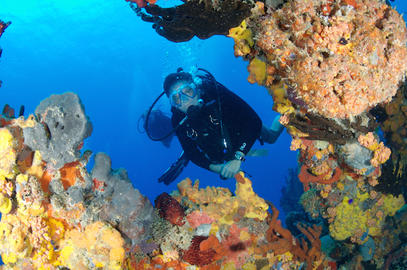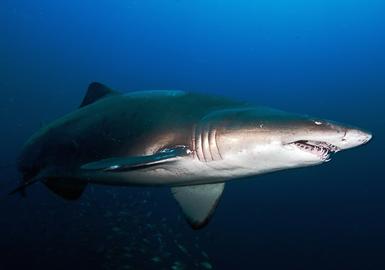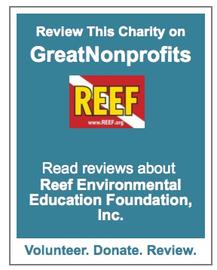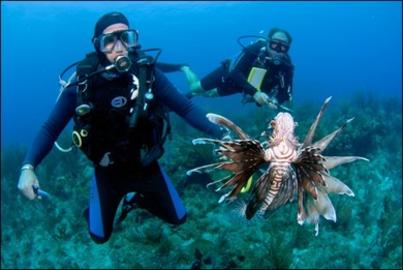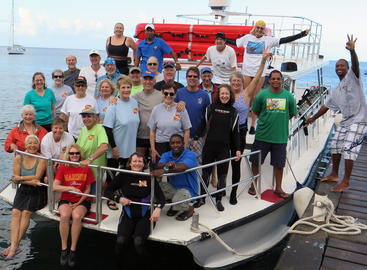Information on fish movement and growth is primarily obtained through the marking and tracking of individuals with external tags, which are usually affixed to anesthetized individuals at the surface. However, the quantity and quality of data obtained by this method is often limited by small sample sizes owing to the time associated with the tagging process, high rates of tagging-related mortality, and displacement of tagged individuals from the initial capture location.
REEF members are at the heart of our grassroots marine conservation programs. Over 50,000 divers, snorkelers, students, and armchair naturalists stand behind our mission.
This month we highlight Daryl Duda. Daryl has been a REEF member since 2012, and has conducted 43 surveys. He is working his way up the ranks, and is now a Level 3 Surveyor! Here's what Daryl had to say about REEF:
When and how did you first volunteer with REEF or become a REEF member?
We've got lots of exciting, fun, and educational REEF Fishinars in store for you this fall - featuring your favorite instructors and special guests. Check out the full schedule at www.REEF.org/fishinars. REEF Fishinars are a free benefit of REEF membership, and did you know that REEF members can also access and view any of our archived Fishinars from previous years? Fishinars coming up include:
Do you think REEF is doing great work? Please take a few minutes to tell others about your experience with REEF! Your personal story and feedback help us gain visibility and help us improve. Please share your experience through the GreatNonprofits.org website at: http://gr8np.org/go/yKD
Here's an excerpt from a recent review from a fellow REEF member:
REEF teamed up with the Coral Restoration Foundation (CRF) during the second week of September to host the first-ever “Corals In & Lionfish Out,” a series of events to engage and educate the public while raising funds for coral restoration and invasive lionfish removal efforts in the Florida Keys. “Corals In & Lionfish Out” coincided with REEF’s Fifth Annual Key Largo Lionfish Derby, which was held at John Pennekamp Coral Reef State Park on Sept. 13.
If you haven't yet had a chance to check out REEF's 2015 Field Survey Trip Schedule, we encourage you to take a look. Visit www.REEF.org/trips to see the complete schedule, package details, trip leader bios, trip policies, and more. We hope you will join us!. Spaces are starting to fill up, and we want to make sure you don't miss this chance to take a "Dive Vacation that Counts".
Managing natural populations and communities requires detailed information regarding demographic processes (or status of a population) at large spatial and temporal scales. This combination is challenging for both traditional scientific surveys, which often operate at localized scales, and citizen science designs, which often provide data with few auxiliary information (i.e. no information about individual age or condition).
The authors of this study (including REEF staff Lad Akins) examined the recent case of Indo-Pacific lionfish invading Northern Gulf of Mexico coastal waters. The authors compared traditional reef fish monitoring efforts to less traditional data including the observations of divers through REEF's Volunteer Fish Survey Project and spearfishers. They found that citizen observations documented lionfish 1-2 years earlier and more frequently than the more traditional monitoring efforts.
This paper presents results from a study conducted as part of REEF's Grouper Moon Project, evaluating the potential ecosystem-level effect of Nassau Grouper aggregations. In particular, the study looked at the impact the spawning aggregation has in creating biogeochemical "hot moments", which occur when a temporary increase in availability of one or more limiting nutrients results in elevated rates of biogeochemical reactions.

